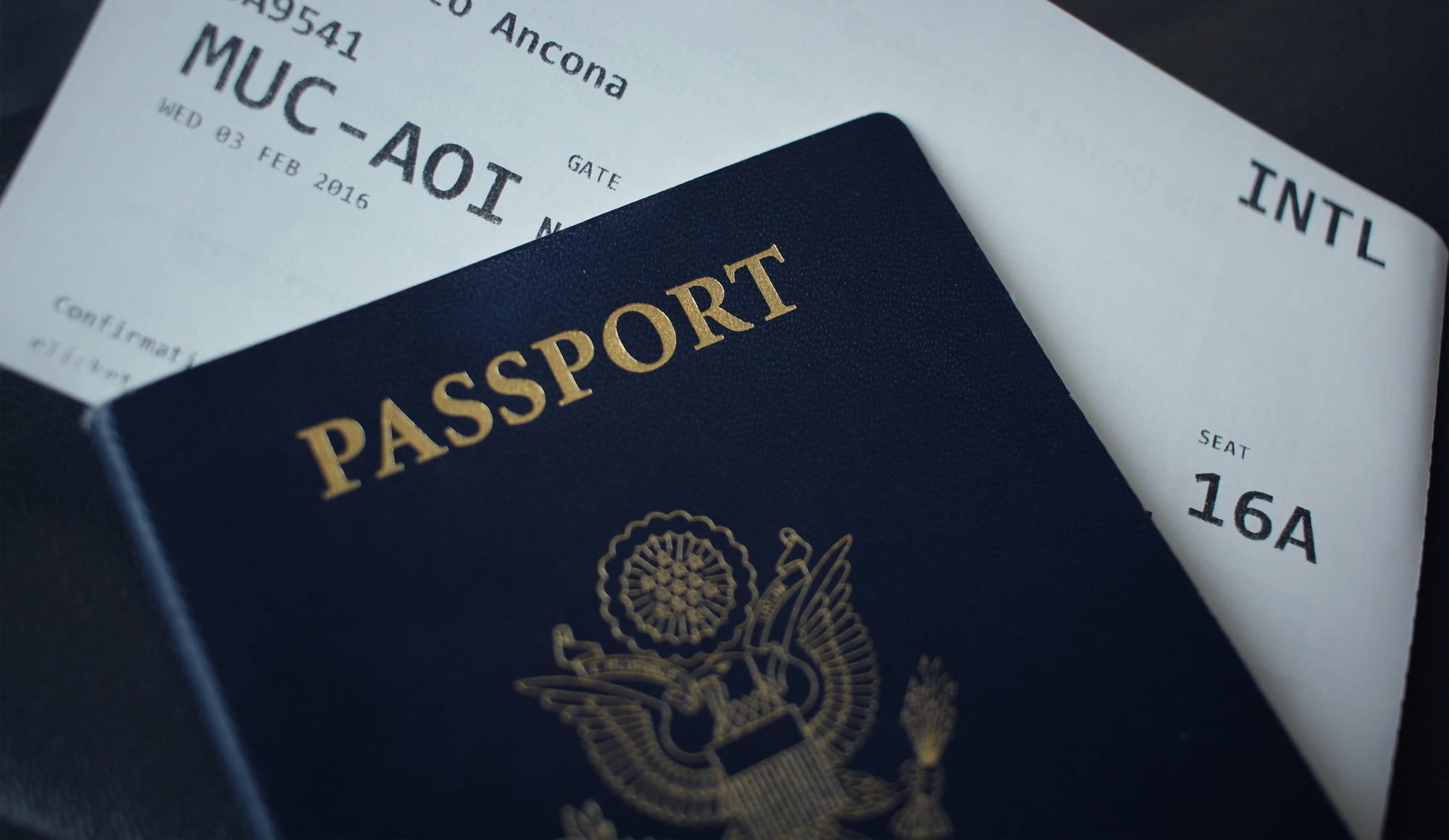Citizenship by Exception (CBE) has emerged as a powerful pathway for those seeking to expand their horizons beyond traditional borders. Unlike standard naturalization processes that require years of residency, CBE allows countries to grant citizenship based on exceptional contributions, talents, or circumstances that benefit the nation.
This discretionary approach is gaining popularity in 2025 as governments worldwide compete to attract top talent, innovators, and investors. While similar to Citizenship by Investment (CBI) in some ways, CBE emphasizes merit and impact over fixed financial thresholds, offering a more flexible route for qualified individuals.
This comprehensive guide explores everything you need to know about CBE in 2025: from its advantages and differences with CBI, to key countries offering it, requirements, processes, costs, benefits, and frequently asked questions. Whether you're an entrepreneur, artist, scientist, or philanthropist, CBE could be your key to enhanced freedom and security.

Citizenship by Exception (CBE) is a specialized naturalization process that grants citizenship to individuals based on their exceptional circumstances, skills, or contributions to a country, while Citizenship by Investment (CBI) primarily focuses on granting citizenship in exchange for a significant financial investment in the host country.
The Dual Citizenship Advantage
Unlocking Global Opportunities
Imagine a world where borders become bridges, where your potential isn't limited by a single passport, but amplified by the synergy of two.
Dual citizenship isn't just about having an extra document – it's about crafting a life of unprecedented freedom, security, and opportunity.
As you embark on this journey of global citizenship, you're not just opening doors; you're creating a master key that unlocks a world of possibilities tailored to your ambitions and dreams. The accident of your country of birth need not limit your strategy for moving freely through the world.

Beyond pure freedom, there are other advantages:
- Enhanced Mobility: Access visa-free travel to over 150 countries on average, combining the strengths of multiple passports. For instance, a Serbian CBE passport grants entry to 135 destinations, including China and Russia, complementing a U.S. passport's power.
- Business Expansion: Work and invest freely in multiple jurisdictions without work permits, doubling your professional reach.
- Education and Family Benefits: Enjoy in-state tuition rates, easier university admissions, and family reunification options across countries.
- Cultural and Lifestyle Enrichment: Immerse in diverse cultures, fostering innovation and personal growth in a globalized economy.
Financial and Tax Considerations
Dual citizenship can offer significant financial advantages, but it's crucial to navigate the complexities thoughtfully:
- Tax Optimization: Countries like Serbia offer low corporate taxes (15%), allowing legal strategies to minimize global tax burdens.
- Asset Protection: Diversify holdings across jurisdictions, shielding wealth from economic instability or political changes.
- Property and Investment Access: Bypass foreign ownership restrictions, enabling investments in prime real estate or businesses. Explore CitizenX Real Estate Listings for CBE-aligned opportunities.
- Social Safety Nets: Gain eligibility for healthcare, pensions, and other benefits in multiple countries.
U.S. Citizenship Considerations
For those eyeing U.S. dual citizenship via exceptions (e.g., EB-1A visas for extraordinary ability):
- Global Taxation: U.S. citizens report worldwide income, requiring careful planning.
- Compliance Requirements: Adhere to FATCA for foreign assets.
- Benefits: Access the world's largest economy and a passport ranked among the top 10 for mobility.
- Renunciation Option: If needed, U.S. citizenship can be relinquished, though it's irrevocable and involves fees.
Dual citizenship amplifies your global footprint, but always align it with your long-term goals.

The Emergence of Citizenship by Exception
While both CBE and CBI offer paths to second citizenship, they differ fundamentally in structure, eligibility, and focus. CBI involves predefined financial investments (e.g., $100,000+ donations or real estate purchases) leading to citizenship in 3-12 months, with clear legal frameworks. In contrast, CBE is discretionary, rewarding exceptional merit rather than fixed sums, often bypassing lengthy residency requirements.
Here's a detailed comparison:
| Aspect | Citizenship by Exception (CBE) | Citizenship by Investment (CBI) |
|---|---|---|
| Process | Discretionary; government evaluates case-by-case based on national interest. | Structured; follows fixed laws with minimum investment thresholds. |
| Eligibility | Exceptional talents (e.g., scientists, athletes), contributions (economic, cultural, humanitarian). No standard criteria. | Financial capability; investments in funds, real estate, or businesses. |
| Timeframe | 3-12 months, often faster for high-impact cases (e.g., Serbia: 3-6 months). | 3-6 months typically. |
| Cost | Variable; $250,000+ in contributions or investments, but no fixed minimum. | Fixed; e.g., $100,000 donation in Caribbean programs. |
| Residency Required | Minimal or none; focuses on contributions over presence. | Often none, but some require short visits. |
| Examples | Serbia (business/tech contributions), UAE (nominations for scientists). | Antigua & Barbuda (real estate investment). Explore CitizenX CBI Guide. |
Real-world cases highlight differences: Actor Steven Seagal received Serbian citizenship for cultural ties, a CBE example, versus CBI's straightforward investments. CBE suits those with unique skills, while CBI appeals to pure investors.
Countries Offering Citizenship by Exception in 2025
- Serbia: A frontrunner for CBE, Serbia grants citizenship for exceptional contributions in business, science, sports, technology, or culture. Approved by the president, it requires no continuous residency. Benefits include visa-free access to 135 countries and low taxes. Cost: ~€250,000+ in investments creating jobs or impact. Example: Johnny Depp for cultural links. Process: 3-6 months. Ideal for entrepreneurs—link to CitizenX Business Investment Options.
- United Arab Emirates (UAE): Targets scientists, doctors, and investors via nomination by government officials. No residency needed; offers 0% income tax and access to 180+ countries. Cost: Variable, often $500,000+ in contributions. 2025 update: Emphasis on AI and green tech talents.
- Canada: Through skilled worker programs or exceptional talent visas, leading to citizenship in 3-5 years. Focus: Economic impact via job creation. Cost: $300,000+ in business setups. Visa-free: 185 countries.
- United States: EB-1A visa for extraordinary ability (artists, athletes, executives) fast-tracks green cards, then citizenship in 5 years. Requires proof of acclaim. Cost: $500,000+ including legal fees. Benefits: Global economic access. See USCIS Policy on Exceptions.
- Poland: For investments creating jobs or cultural contributions. EU access upon citizenship. Cost: €300,000+. Time: 6-12 months.
- Slovenia: Rewards contributions to science, economy, or culture enhancing national reputation. No fixed residency. Cost: Variable, ~€200,000+.
- France: "Talent Passport" for innovators; leads to citizenship. Focus: Tech and arts. Cost: Investment-based, $400,000+.
- Cyprus: Discretionary for high-impact investors. EU benefits. Cost: €500,000+.
- New in 2025: Anonymous Latin American Country: Discretionary program for HNWIs; $300,000 all-in, 7-8 months processing. Anonymity-focused, ideal for privacy.
- Others: Albania (national interest investments), Moldova (exceptional services), Qatar (sports/culture).
| Country | Typical Contributions | Timeframe | Visa-Free Access | Estimated Cost |
|---|---|---|---|---|
| Serbia | Business/tech/culture | 3-6 months | 135 | €250,000+ |
| UAE | Science/investment | 6-12 months | 180+ | $500,000+ |
| Canada | Job creation/skills | 3-5 years | 185 | $300,000+ |
| USA | Extraordinary ability | 5 years | 180+ | $500,000+ |
| Poland | Investments/jobs | 6-12 months | EU (190+) | €300,000+ |
| Slovenia | Economic/cultural | Variable | EU (190+) | €200,000+ |
| France | Innovation/talent | 5 years | EU (190+) | $400,000+ |
| Cyprus | High-impact investments | 6-12 months | EU (190+) | €500,000+ |
| Latin Am. X | Discretionary investments | 7-8 months | 100+ | $300,000 |
| Albania | National interest | Variable | 115 | €250,000+ |
For donation-based contributions, visit CitizenX Donation Programs.
Requirements and Process for Citizenship by Exception
CBE requirements vary by country but center on proving exceptional value. Common elements include clean criminal records, health checks, and evidence of impact (e.g., patents, job creation).
Key Requirements
- Contributions: Economic (investments creating 50+ jobs), cultural (arts enriching society), humanitarian (philanthropy during crises), or talent-based (Olympic athletes).
- Nominations: Some (e.g., UAE) require government endorsement.
- Documents: Passport, birth certificates, police clearance, financial proofs.
- 2025 Updates: Stricter due diligence; focus on sustainable impacts like green tech.
Application Process
- Assess Eligibility: Consult experts to match your profile (e.g., via CitizenX Consultation).
- Prepare Application: Gather evidence; submit to embassy or ministry.
- Due Diligence: Background checks (1-3 months).
- Approval and Contribution: Pay/invest upon approval.
- Citizenship Grant: Receive passport; oath if required.
Time: 3-12 months. Costs include legal fees ($50,000+).
Benefits and Considerations of Citizenship by Exception
CBE offers transformative advantages in 2025:
- Pros:
- Speed and Flexibility: Bypass 5-10 year residencies; no continuous presence needed.
- Mobility and Security: Dual citizenship allowed in most (e.g., Serbia permits it; exceptions like China prohibit). Access 100-190 visa-free countries.
- Economic Perks: Tax optimization (e.g., UAE 0% income tax), business opportunities.
- Family Inclusion: Spouses, children often qualify.
- Prestige: Recognition for your contributions enhances global status.
- Cons:
- Discretion Risk: Rejection possible without appeal.
- Variable Costs: $250,000-$1M+, plus uncertainty.
- Scrutiny: Potential media attention; fraud risks—vet programs carefully.
- 2025 Changes: Ukraine now allows multiple citizenships (except Russia).
Compared to birthright citizenship (available in 33 countries like the U.S.), CBE is merit-driven.
Citizenship by Exception vs. Citizenship by Investment Programs
While both Citizenship by Exception (CBE) and Citizenship by Investment (CBI) programs offer pathways to acquiring a second citizenship, fundamental differences exist between these two options.
CBI, the more common of the two, typically requires a significant financial investment in the host country, such as purchasing real estate, making a donation to a national development fund, or investing in government bonds.
The focus here is squarely on the economic contribution, with a clear, often monetary, threshold qualifying the investor for citizenship consideration.
Conversely, CBE is more nuanced and tailored on an individual basis, focusing not just on economic investment but also on the prospective citizen's potential to contribute to the country's socio-economic fabric in unique or exceptional ways.
This could be through introducing innovative technologies, contributing to cultural or educational advancements, or filling a critical gap in the nation's labor or expertise pool. The essence of CBE lies in its flexibility and the personalized value an individual brings beyond monetary investment.
While both programs serve as viable strategies for nations to attract wealth and talent, CBE's approach is inherently more selective, aiming to foster long-term relationships and synergies between the new citizens and the host country.
This individualized assessment under CBE ensures that the benefits extend beyond economic gains, enriching the nation's cultural, intellectual, and professional landscapes.
A Global Perspective: CBE Programs Around the World
In the realm of global citizenship, Citizenship by Exception (CBE) programs have emerged as powerful tools for individuals seeking to expand their horizons and secure their futures. Let's embark on a world tour of some of the most compelling CBE programs, each offering unique advantages to the discerning global citizen.
European Gateways
Portugal: The Golden Visa Pioneer
Portugal's Golden Visa program stands out as a beacon of opportunity in Europe. With a relatively low investment threshold and a path to citizenship after five years, it's become a favorite among global investors. The program offers:
- Multiple investment options, including Bitcoin ETF and capital transfer opportunities
- Minimal residency requirements (7 days per year)
- Access to the entire Schengen Area
Malta: Mediterranean Hub for Global Citizens
Malta's Individual Investor Programme (IIP) offers one of the fastest routes to EU citizenship. Key features include:
- Citizenship possible within 12-36 months
- Strong passport with excellent global mobility
- Strategic location bridging Europe and North Africa
Croatia: The Rising Star
Croatia's citizenship by investment program, while newer, is gaining traction due to:
- Lower investment thresholds compared to other EU countries
- Beautiful coastline and high quality of life
- Growing economy with strong ties to both EU and Balkan markets
Serbia: An Emerging Opportunity
Serbia, while not as well-known in the CBE landscape, is emerging as an intriguing option for those seeking citizenship in a foreign country with a rich history and strategic location in Southeastern Europe. The country offers:
- A developing economy with potential for growth
- A pathway to possible EU membership in the future
- Relatively low cost of living and investment thresholds
Beyond Europe
Canada: North American Dream with a Twist
While not a traditional CBE program, Canada's business immigration pathways offer unique opportunities:
- Multiple provincial nominee programs catering to entrepreneurs and investors
- World-class healthcare and education systems
- Stable political and economic environment
Australia: Pacific Powerhouse
Australia's Significant Investor Visa (SIV) program is designed for high-net-worth individuals looking to make a mark in the Asia-Pacific region:
- Path to permanent residency with a significant investment
- Access to one of the world's most stable economies
- High quality of life and diverse natural landscapes
Vanuatu: South Pacific Solution
For those seeking rapid citizenship acquisition, Vanuatu's program offers:
- Citizenship possible within 2-3 months
- Tax-friendly environment
- Visa-free access to 130+ countries, including the UK and EU

Navigating Complex Regulations
The path to Citizenship by Exception, while transformative, often involves navigating a labyrinth of complex regulations and bureaucratic processes. At CitizenX, we believe that understanding these intricacies is crucial for a seamless journey to your new citizenship.
Understanding Key Regulatory Bodies
United States Citizenship and Immigration Services (USCIS) and its global counterparts play pivotal roles in the citizenship process. For those considering dual citizenship or transitioning from U.S. citizenship, it's essential to be well-versed in USCIS procedures. These can range from straightforward documentation to more nuanced legal interpretations.
The Immigration and Nationality Act (INA) serves as the foundation for much of the U.S. immigration law. Its provisions can significantly impact your citizenship journey, especially if you're considering maintaining dual citizenship with the United States.
Navigating Essential Forms and Processes
The journey to citizenship often involves a myriad of forms and processes, each serving a specific purpose in your application. Understanding these key documents can significantly streamline your path to becoming a global citizen.
Key U.S. Forms
- Form N-400 (Application for Naturalization): This is the primary form for those seeking U.S. citizenship through naturalization. It's a comprehensive document that covers your eligibility, background, and commitment to the United States.
- Form N-648 (Medical Certification for Disability Exceptions): This form is crucial for those seeking exemptions from certain naturalization requirements due to physical, developmental, or mental impairments. It ensures that the naturalization process remains accessible to all.
- Form I-131 (Application for Travel Document): For those maintaining dual citizenship or navigating the citizenship process, this form is essential for international travel without jeopardizing your application status.
Global Citizenship Processes
While forms vary by country, common processes in Citizenship by Exception programs often include:
- Investment Verification: Documentation proving your qualifying investments, whether in real estate, government bonds, or business ventures.
- Residency Tracking: Many countries require proof of physical presence or continuous residence. Meticulous record-keeping of your time spent in the country is often crucial.
- Background Checks: Expect to provide extensive documentation of your personal and professional background, often including police clearances from countries where you've resided.
- Language Proficiency Tests: Many countries require proof of language skills. Tests like IELTS or country-specific exams are common requirements.
Global Perspectives on Citizenship Regulations
While we've focused on U.S. regulations, it's important to note that each country has its own set of rules and procedures for Citizenship by Exception. European countries like Portugal, Croatia, and Hungary offer compelling programs, each with unique requirements and benefits. Similarly, countries like Australia and Canada have their own pathways to citizenship, often tied to specific investment or residency requirements.
Case Studies of Notable Individuals Who Acquired Citizenship by Exception
The appeal and efficacy of Citizenship by Exception (CBE) are not mere theoretical propositions. They are evidenced by a number of high-profile cases that showcase the program's ability to attract individuals who not only bring substantial economic benefits but also contribute significantly to the cultural, technological, and social advancement of their adopted countries. Here are three noteworthy examples:
1. Eduardo Saverin - Co-founder of Facebook
Eduardo Saverin, one of the co-founders of Facebook, became a notable case of Citizenship by Exception when he renounced his U.S. citizenship for residency in Singapore. Saverin's relocation and investment in the Asian market have not only contributed to Singapore's tech startup scene but also highlighted how CBE can facilitate the global movement of tech entrepreneurs.
His case illustrates the strategic migration of talent and capital, proving mutually beneficial for both the individual and the host country.
2. Pierre Omidyar - Founder of eBay
The French-American billionaire and philanthropist Pierre Omidyar, best known for founding eBay, has also been involved in citizenship initiatives that align with the principles of Citizenship by Exception.
His involvement in various philanthropic efforts and significant investments in green and sustainable technologies around the world underscore how CBE beneficiaries can impact global issues positively.
While not acquiring a new citizenship through CBE directly, Omidyar's activities embody the essence of how CBE candidates can contribute beyond mere economic investments.
3. Christian Angermayer - Entrepreneur and Investor
Christian Angermayer, a German entrepreneur and investor with a focus on life sciences, fintech, and deep tech, represents a paradigm case of how Citizenship by Exception fosters innovation and progress.
By leveraging his citizenship status acquired through substantial contributions in various countries, Angermayer has facilitated groundbreaking research in mental health and longevity, showcasing the potential for CBE recipients to drive significant advancements in critical global challenges.
These cases effectively demonstrate the profound impact that Citizenship by Exception can have, not only on the individuals acquiring new citizenship but also on the host countries.
The program, when utilized judiciously, can serve as a beacon for attracting global talent and investment, fostering an environment of mutual growth and innovation.
In Summary
For high-net-worth individuals and global citizens, the world of CBE is one that offers boundless potential yet requires a measured approach. The allure of a second citizenship that bestows security, opportunity, and freedom beckons, but the decision to pursue CBE is one that should be made conscientiously and with full appreciation for its complexities.
In an age defined by mobility and the search for stability, CBE is a dynamic tool that resonates with those looking to invest in their future. Although it is not a one-size-fits-all solution, for those who do qualify and proceed, the journey toward acquiring a second citizenship can be a transformative one. It opens new horizons, underpins strategic goals, and sustains the spirit of enterprise that continues to drive global innovation.
The enduring question remains: In a world where change is the only constant, will the concept of citizenship continue to evolve, or do traditional notions of belonging still hold sway? The answer may well lie in the collective decisions of nations and the shared aspirations of individuals as they co-create the narrative of the world's future.
Navigating Citizenship Processes: From Application to Oath
The journey to acquiring citizenship through exception is a complex process that requires careful navigation of various legal and administrative procedures. At CitizenX, we guide you through each step, ensuring a smooth transition to your new status as a global citizen.
Consular Services and Government Interactions
Engaging with consular services is often a crucial part of the citizenship process. These services can include:
- Document authentication
- Providing information about the host country
- Assisting with visa applications for family members
It's important to maintain positive relationships with both your home country's consular services and those of your target country. Remember, consular officers can be valuable resources in your citizenship journey.
Addressing Potential Roadblocks
While the path to citizenship is exciting, it's crucial to be aware of potential challenges:
- Deportation Risks: Although rare in CBE cases, understanding deportation laws is essential. CitizenX ensures you're always in compliance, mitigating any such risks.
- Military Service Requirements: Some countries have mandatory military service for citizens. We provide clear information on these obligations and potential waivers or alternatives.
- Nonimmigrant Status Transitions: If you're currently on a nonimmigrant visa in your target country, we guide you through the transition to permanent residency and citizenship.
The Final Steps: Oath of Allegiance and Beyond
The culmination of your citizenship journey often involves taking an oath of allegiance to your new country. This ceremony is not just a formality—it's a profound moment of commitment to your new home. We prepare you for this significant event, ensuring you understand its importance and implications.
FAQs and Common Concerns
Throughout the process, you may encounter questions or concerns. Some common areas include:
- Implications for existing citizenship (especially relevant for countries like Germany with restrictions on dual citizenship)
- Access to government services (often denoted as '.gov' websites) in your new country
- Specific country considerations (e.g., Mexico's unique pathways to citizenship)
At CitizenX, we maintain an extensive FAQ database and provide personalized answers to your specific queries.
CitizenX: Strategizing for Success
While we strive for a smooth process, it's always wise to have a backup plan. This might involve:
- Alternative investment strategies
- Exploring multiple country options simultaneously, including lesser-known foreign country programs that may offer unique advantages
- Timing considerations for optimal success
Our experts work with you to develop a robust Plan B, ensuring you're prepared for any eventuality in your global citizenship journey.
FAQs on Citizenship by Exception
- What is the average cost? Variable, but $300,000+ including contributions and fees.
- Can family be included? Yes, in programs like Serbia and UAE.
- How does it differ from naturalization? CBE skips long residencies and language tests.
- Is it legal? Yes, when aligned with national laws.
- Best for HNWIs? Absolutely—optimizes mobility and taxes. Contact CitizenX Experts for tailored advice.
- 2025 Trends? Rise in tech-focused CBE.
Conclusion
Citizenship by Exception in 2025 is a gateway to global empowerment for those with exceptional value to offer. From Serbia's fast-track for innovators to UAE's elite nominations, these programs provide mobility, security, and opportunities unmatched by traditional paths. Ready to explore? Start with CitizenX's Personalized Assessment and unlock your global potential today. (Word count: ~4,850)
In 2025, approximately 15-20 countries provide CBE pathways, up from previous years as nations seek to bolster economies and innovation. These programs are often low-profile, requiring connections or nominations. Below, we detail top options, including updates like expanded tech focus in Serbia and new discretionary programs in Latin America.




